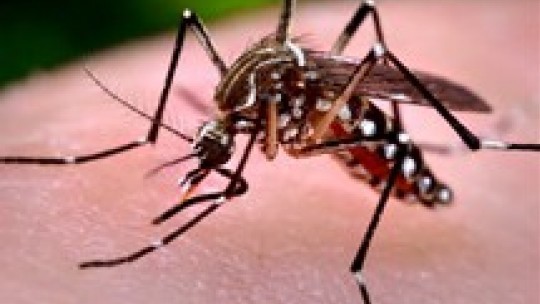The United States Centers for Disease Control and Prevention (CDC) is reportedly debating whether to warn pregnant women against travel to countries in the Caribbean, and Latin American, where mosquitoes are spreading the Zika virus, which has been linked to brain damage in newborn babies·
Officials say it could be the first time the CDC advises pregnant women to avoid a specific region during an outbreak. But some infectious disease specialists say, while such a warning is warranted, it could have a devastating effect on travel and tourism.
A CDC spokesman said the agency hoped to make a final announcement either on Thursday or Friday.
“We can’t make these decisions in a vacuum,” said Thomas Skinner. “We’re consulting with other experts outside.”
The Zika virus first appeared on the South American continent in May, and although it often causes only mild rashes and fevers, women, particularly those in the first trimester of pregnancy, appear to be much more likely to have children with small heads and damaged brains, a condition called microcephaly.
Dr. Lyle R. Petersen, director of vector-borne diseases for the CDC, said the agency had found Zika virus in tissue from four Brazilian infants, two of whom had microcephaly and died shortly after birth, and two of whom died in the womb.
Microcephaly has several other causes, including genetic defects, or rubella or cytomegalovirus in the mother during pregnancy.
The New York Times reports that although the travel advice would most obviously apply to Brazil, which is struggling with an alarming surge in newborns with microcephaly, it could soon apply to much of tropical Latin America and the Caribbean.
Some American virologists are already warning women who are pregnant or trying to have children to avoid traveling to the region.
The local transmission of Zika virus has been found in 14 Western Hemisphere countries and territories, including Brazil, Colombia, El Salvador, French Guiana, Guatemala, Haiti, Honduras, Martinique, Mexico, Panama, Puerto Rico, Paraguay, Suriname and Venezuela.
The virus is transmitted by the Aedes aegypti mosquito.
The Washington-based Pan-American Health Organization (PAHO) has said that it was working with member-countries in the region “to prevent, detect and respond to this new threat.”
Since the Aedes mosquito is found throughout the region, except in continental Chile and Canada, PAHO said it is likely that outbreaks will occur in other countries that have not yet reported any cases.
Jamaica has not yet reported any case of the Zica virus.
SOURCES: CDC, Caribbean Media Corporation










 All feeds
All feeds







